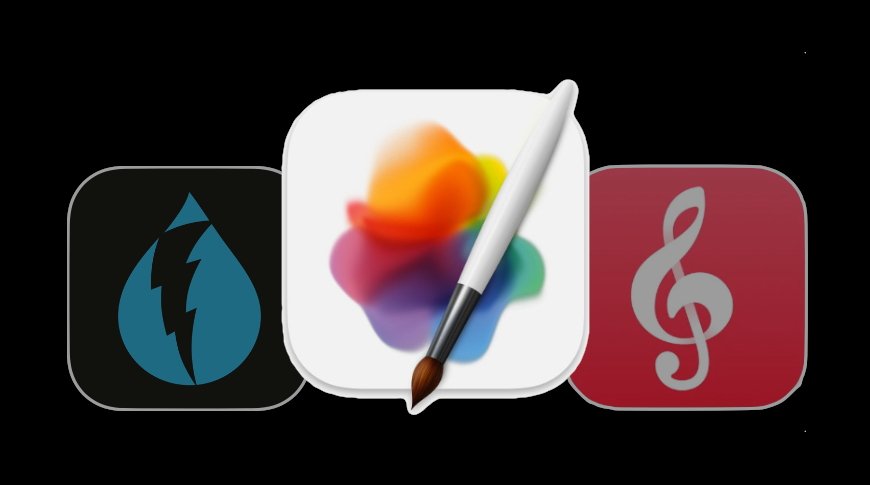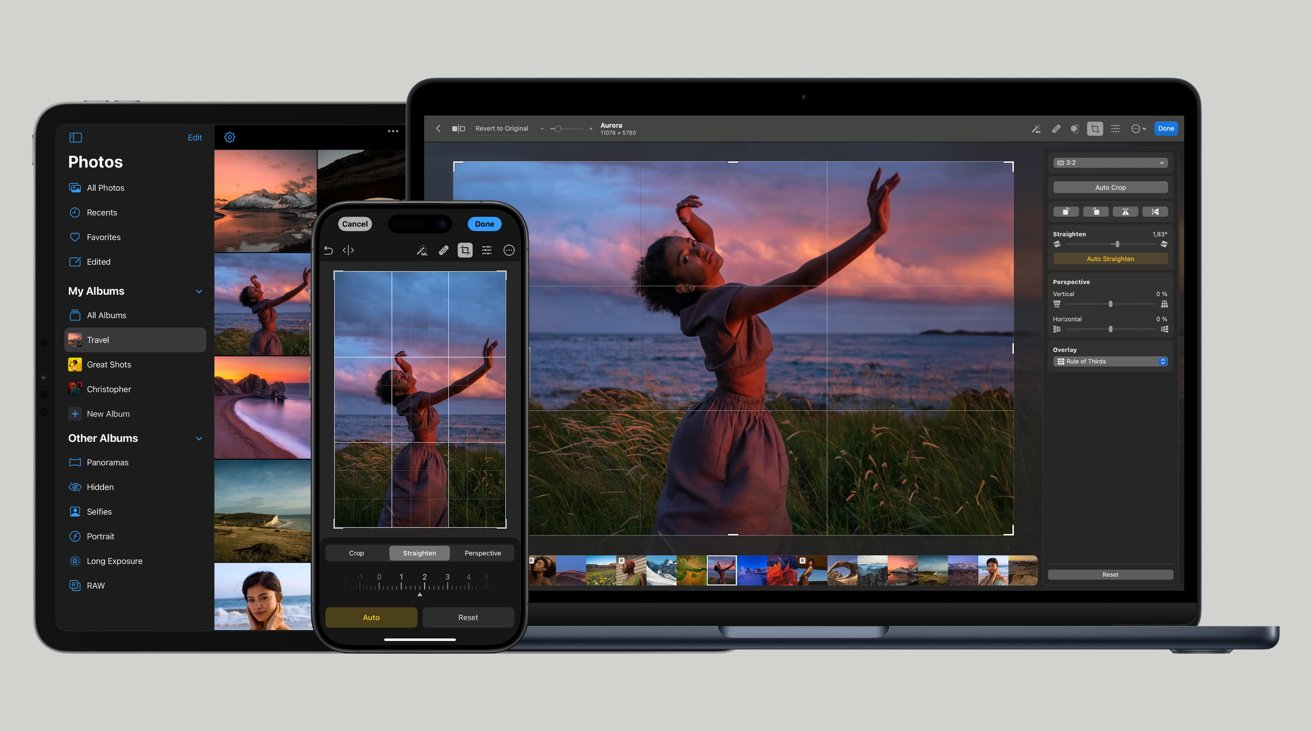Dark Sky (left) was shut down, Apple Music Classical (right) came from an acquisition, so what will happen to Pixelmator?
If Apple’s surprise acquisition of Mac developer Pixelmator passes the regulators, the future of its beloved apps may be bright — or there could be dark skies ahead.
The Pixelmator company has announced that it has agreed to be acquired by Apple, pending only regulatory approval. Assuming the acquisition goes ahead, it means that Apple gains Photomator, Pixelmator, and perhaps most significantly, Pixelmator Pro.
Pixelmator has been an independent developer for 17 years and when it first introduced what would become Pixelmator Pro, it did look like a cheaper alternative to Adobe Photoshop. It looked like it, it was it, and to this day it remains that lower-cost option, but it’s also become much more than that.
You no longer buy Pixelmator Pro because it’s a one-time purchase that is ludicrously cheap compared to the price of an Adobe subscription. You buy it because it is a world-class image editor, and the price is just a huge extra benefit.
Only a few Mac apps become beloved, but Pixelmator Pro is one of them. It’s immensely powerful, it’s very fast, and the team that is now joining Apple has been updating it startlingly regularly.
So as surprising as the news of the acquisition was, there has to be optimism that with Apple pushing it, Pixelmator Pro will gain a wider audience. There has to be hope, too, that the one thing users keep waiting for may now happen.
For if the acquisition gives the Pixelmator company more resources, it might finally bring Pixelmator Pro to the iPad. There is already an iPad version of the more basic Pixelmator app, but making a Pixelmator Pro for iPadOS would be a boon.
Fingers crossed
Only, Apple has a very mixed track record with apps that it acquires. The Pixelmator team say in their blog that “there will be no material changes to the Pixelmator Pro, Pixelmator for iOS, and Photomator apps at this time.”
But even as reasonable as it is to say “at this time” when no one can know the future, it’s still a troubling phrase. If you’ve been using Mac or iOS apps for more than a couple of years, you will at least know of Dark Sky, the once immensely popular cross-platform weather app.
Dark Sky was subsumed into Weather
Apple bought the company in 2020, and while it took some time to do it, really it asset-stripped the app. First Dark Sky shut down on Android later in 2020, then it shuttered on iOS in August 2022.
There’s no arguing that this was anything but bad news for Android users, but also for very many weather apps across all platforms. Dark Sky had a solid business selling weather date to countless other apps, and all of them had to find alternatives.
It is arguable that it was bad news for iOS users. For Apple did end Dark Sky, but it subsumed its features into the Weather app — and you can debate how well it did.
Dark Sky had a reputation for great accuracy, at least in the US where reporting weather stations are plentiful. In Apple’s revamped Weather app, anecdotal evidence suggests that accuracy has somehow been lessened.
Workflow became Shortcuts
On the other hand, Apple may have ditched the Workflow app’s name when it acquired it in 2018, but it turned out to be the best news possible for users. For Workflow was an automation app that could do a lot, but Apple transformed it into Shortcuts, which can do so much more.
With Apple behind it, Shortcuts is able to connect deeply into iOS and macOS. Being part of Apple itself gives it so much greater access to the operating systems than the original developers could ever be allowed.
Back in 2018, there was fear that Apple was buying Workflow to bury it. It was a reasonable fear because Apple did buy Dark Sky to take it off Android and make it an iOS benefit.
But instead Workflow has transformed into this important part of iOS and macOS, even if sometimes you wish Apple would update Shortcuts a little more.
The third case — Primephonic
So Dark Sky was asset-stripped, Workflow was renamed but practically reborn as a better version of itself. Amongst all of the apps Apple has acquired, there is a third type that is best typified by what it did with Primephonic.
Primephonic was a classical music streaming service that Apple bought in 2021. Very unusually, Apple itself made some noise about this, saying that it would improve Apple Music for the classical audience, and do so in 2022.
There was then not a single word about it until 2023. Then it was launched anew under the name Apple Music Classical.
Apple has certainly brought classical music to more people than Primephonic could ever manage. But for a whisper under 19 months, Primephonic was unavailable and Apple Music Classical hadn’t launched.
Which way Pixelmator will go
Pixelmator’s apps will not go dark. They will not vanish for 19 months.
They might be renamed. Apple’s suite of major productivity apps is lacking an image editor.
So perhaps we’ll eventually see Pages, Numbers, Keynote, and Pictures. It would be throwing away 17 years of the Pixelmator brand, but it could happen.
It’s probably more likely that Pixelmator’s apps will continue as they are. Perhaps Pixelmator itself will go and be replaced on Mac, iPad, and iPhone, with the better Pixelmator Pro.
There’s just also a question over why Apple has done this now, though. It has had a long time to buy Pixelmator, and perhaps it has done so now because it somehow fits in with future plans for the Apple Intelligence Image Playground.
But Pixelmator Pro is not the only beloved and cheaper alternative to Adobe Photoshop. There’s also Affinity Photo — and that was acquired by Canva early in 2024.
Maybe Canva was also circling Pixelmator. Maybe there’s some reason why Apple didn’t want to see Canva owning this market.
Or maybe Apple is conscious of how Adobe has been repeatedly alienating its creative user base. Apple has always been the preferred choice for image workers and illustrators.
So perhaps this acquisition of Pixelmator is Apple working to keep its position in that market. Perhaps this acquisition of Pixelmator will turn out to be a tremendous thing for Apple, for the Pixelmator team, and for users.


